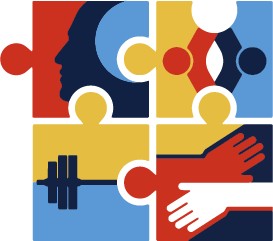Whether it’s overall access to care and screening for health indicators like cholesterol, or the outcomes of serious diseases and lack of diversity in clinical trials1,2, health equity challenges can be found across the healthcare landscape, and disparities often break down along racial and gender lines3.
In cardiovascular disease (CVD), for example – arguably the greatest public health challenge today – Black/African American people account for 12.6% of patients with ASCVD, yet they represent just 2.9% of the CVD clinical trial population4,5.
Disparities in Treating LDL Cholesterol
Katherine Wilemon, founder and CEO of the Family Heart Foundation, spoke recently at The Atlantic’s Health Equity Summit, for which Amgen was an underwriter, about how real-world data from the Family Heart Database shows disparities in outcomes when it comes to meeting treatment goals for lowering LDL cholesterol.
“What we know is if you’re white, you’re more likely to be prescribed guideline recommended care,” Wilemon said. “And we also know if you’re a person who is Black, Asian or female, you’re less likely to achieve your LDL-C goals.6“
Empowering Patient Self Advocacy
Ora Williams, a Family Heart Foundation patient advocate with a significant family history of high cholesterol and heart disease, shared her own experience as a Black woman navigating the healthcare system with her condition. “I found out when I was 20 that I had high cholesterol – I was fortunate that I was educated, I had good insurance and I could see good doctors,” she said, noting that over time, she saw her father, uncles, oldest brother and son suffer with heart disease. “My story is that you need to be an advocate for yourself.”
That was a sentiment echoed by others, that one step toward closing disparities in conditions like CVD is to educate people, at both individual and community levels, in ways that allow them to advocate for themselves. That means providing access to screening and encouraging patients to track indicators like LDL cholesterol levels over time so they can have ongoing conversations with their doctors about managing their health 4,7,8,9,10.
Improving Diversity and Representation in Clinical Trials
Access to care and representation in trials are another part of the solution2. “There are advances in drug development and clinical trials,” said Dr. Elizabeth Ofili, cardiologist and professor at the Morehouse School of Medicine, who is leading the African American Heart Study. “Minorities in general don’t have as much access to clinical trials. We are beginning to address the problem, however much work remains, to ensure that representation in clinical trials reflects the population most impacted by the disease under study.”
Clinical trial diversity is a topic Raquel Racadio knows well, as Amgen’s director of global representation in clinical research. On stage, Racadio noted how a statement from illustrator/activist Danielle Coke – “If there is an issue that harms one group disproportionately, it impacts all of us collectively” – exemplifies how she approaches her work to improve representation in clinical research. “We see being more inclusive as a scientific imperative,” Racadio said. “If we’re not collecting full efficacy and safety data for all patients when we’re developing medicines, we’re not developing medicines for all patients.”
Listening to – and Sharing – Patient Stories
During the summit, Racadio sat down with Sandra M. Clark, CEO of StoryCorps, to talk about the importance of listening to – and sharing the stories of – patients who experience disparities to better understand the challenges they face. Amgen has had a long-running collaborative health equity series with StoryCorps, including an episode that featured Racadio – the stories focus not only on real patients’ experiences, but also explore solutions to some of the most pressing health equity challenges.
“Solving these really daunting, systemic issues starts with humanizing the people experiencing them,” Clark said. “They don’t use words like ‘health equity’ but these are experiences they have every day – we have to walk hand in hand to conquer these big issues.”
References












